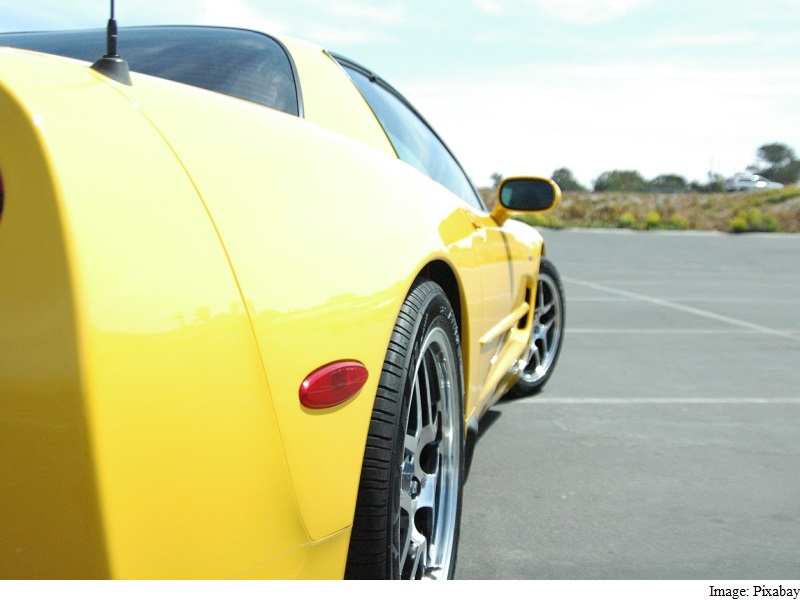- Home
- Science
- Science Features
- How Cities Can Prepare for Self Driving Cars, From a Guy Who Would Know
How Cities Can Prepare for Self-Driving Cars, From a Guy Who Would Know

For cities this creates both great opportunities and risks. Gable Klein knows this well, given his history at organizations that move slowly (government) and quickly (start-ups).
Klein has led the department of transportation in both Chicago and the District of Columbia. He worked at Zipcar, and still advises mobility start-ups such as TransitScreen. He's now a special venture partner with Fontinalis Partners.
In Start-Up City , published this month, Klein shares what he's learned, and casts an eye toward the future. He identifies the advent of self-driving and connected vehicles as perhaps the greatest challenge and most exciting innovation cities will face in coming decades.
He speaks of the potential for better, safer cities with improved public spaces. With self-driving vehicles, there will be significantly less need for parking spaces, creating an opportunity to reclaim and optimize land. Accidents should be less common. Cyclists and pedestrians will be safer. The battle for the future of our ground transportation systems is one he welcomes.
"I can even imagine a scenario in which streets are designed as large, pervious surfaces that are not only more beautiful, breaking down barriers between sidewalks and roads, but can also help our cities become more resilient," Klein writes.
He's also concerned about what could be lost in these changes. Klein wants governments to collaborate with entrepreneurs on business models that increase access, safety and equitability. He warns there's been little discussion of this to date, despite the opportunity for transportation policy makers.
"If this tack is not taken, there is a risk that these services left solely to the free market could instead reinforce existing stratifications, undermining public transit systems and making mobility even more of a luxury good," Klein says.
He suggests the creation of design guidelines for the city of the future. They would focus on reclaiming public space, democratizing mobility and choosing quality of life over just time saved on efficient transportation.
"If governments don't get their priorities straight and get this right, we will recreate existing stratifications and render people out of the canvas that is the future city," Klein cautions.
Klein expects the best public transportation services to survive the disruptive arrival of self-driving vehicles, but he suggests some will not.
"Unreliable local bus networks and mediocre suburban and rural transit are ripe for disruption in this new world," Klein writes. "Fundamentally this is because these services are extremely expensive on a per-ride basis and do not serve customers especially well in terms of frequency, speed, and overall experience."
He calls for calculating the efficiency of vehicles per person, per mile, as well as their impact on the environment. An eco-friendly self-driving car holding four riders might make more sense than a half-empty bus.
As more public spaces open up, one of Klein's ideas is "slow lanes." Any mode of transit could ride in these lanes, provided it weighs under 500 pounds and doesn't go over 15 mph.
A better tomorrow is waiting for us, but we can't leave it all to the disruptors.
© 2015 The Washington Post
Catch the latest from the Consumer Electronics Show on Gadgets 360, at our CES 2026 hub.
Related Stories
- Samsung Galaxy Unpacked 2025
- ChatGPT
- Redmi Note 14 Pro+
- iPhone 16
- Apple Vision Pro
- Oneplus 12
- OnePlus Nord CE 3 Lite 5G
- iPhone 13
- Xiaomi 14 Pro
- Oppo Find N3
- Tecno Spark Go (2023)
- Realme V30
- Best Phones Under 25000
- Samsung Galaxy S24 Series
- Cryptocurrency
- iQoo 12
- Samsung Galaxy S24 Ultra
- Giottus
- Samsung Galaxy Z Flip 5
- Apple 'Scary Fast'
- Housefull 5
- GoPro Hero 12 Black Review
- Invincible Season 2
- JioGlass
- HD Ready TV
- Laptop Under 50000
- Smartwatch Under 10000
- Latest Mobile Phones
- Compare Phones
- OnePlus Turbo 6V
- OnePlus Turbo 6
- Itel Zeno 20 Max
- OPPO Reno 15 Pro Mini 5G
- Poco M8 Pro 5G
- Motorola Signature
- Vivo Y50e 5G
- Vivo Y50s 5G
- Lenovo Yoga Slim 7x (2025)
- Lenovo Yoga Slim 7a
- Realme Pad 3
- OPPO Pad Air 5
- Xiaomi Watch 5
- Huawei Watch 10th Anniversary Edition
- Acerpure Nitro Z Series 100-inch QLED TV
- Samsung 43 Inch LED Ultra HD (4K) Smart TV (UA43UE81AFULXL)
- Asus ROG Ally
- Nintendo Switch Lite
- Haier 1.6 Ton 5 Star Inverter Split AC (HSU19G-MZAID5BN-INV)
- Haier 1.6 Ton 5 Star Inverter Split AC (HSU19G-MZAIM5BN-INV)
















